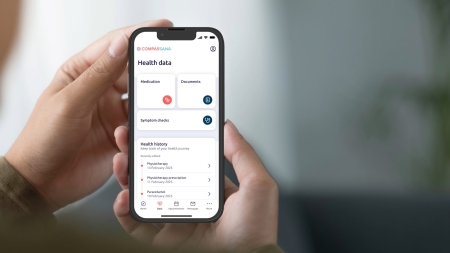What to do if you suffer from back pain
Who isn’t familiar with the annoyance that is back pain? It affects our day-to-day lives and even deprives us of sleep. But what can you do to alleviate the discomfort? Should you continue to participate in sport or is it even advisable to exercise at all? Dr. Nicolas Koechlin, neurosurgeon and attending physician at Hirslanden Klinik Birshof, explains what you can do to relieve back pain and when a visit to the doctor is recommended.

What can you do to relieve back pain?
Dr. med. Nicolas Koechlin: I recommend a combination of rest and gentle exercise at the beginning. For example, short walks and relaxation exercises that don’t aggravate the pain. If necessary, you can take over-the-counter painkillers to alleviate the discomfort. In the vast majority of cases, the pain will subside on its own and mobility will return. Targeted strengthening of your core and back muscles can help prevent back problems from recurring.
When is it necessary to see a doctor?
Care should be taken if the pain intensifies or if other symptoms like the pain radiating into the legs or arms or weakness occur. If this happens, you should see your GP as soon as possible. They will carry out further examinations to diagnose the problem. Besides having your medical history taken and a physical examination, radiology (X-ray, magnetic resonance imaging and/or computer tomography) may be carried out if necessary. Depending on the results, your GP will prescribe physiotherapy and/or stronger painkillers or refer you to a specialist.
What are the warning signs?
If you experience any of the following symptoms, as well as in combination with a fever, you should consult your GP as soon as possible:
- Pain radiating from your back down your legs or arms
- Neurological problems such as loss of feeling and/or weakness in the muscles of the legs or arms (signs of paralysis)
- Bladder or bowel dysfunction
- Back pain following an accident
- Elderly people with diagnosed osteoporosis
When is it necessary to operate?
Surgery is only required in very isolated cases. Patience, rest and careful treatment are very effective in alleviating most complaints. Even a herniated disc rarely requires surgery.
But if surgery is required, we can perform a variety of different surgical procedures, from minimally invasive endoscopic ones to the complex correction of misaligned vertebrae. Following a detailed discussion with the patient and careful consideration of all treatment options available, the least invasive procedure with the greatest possible benefit is chosen.
What about exercise and sport – can you continue to be physically active?
Exercise can also be beneficial even when pain is acute. In addition to targeted strength training for the back and core we recommend incorporating sports that are easy on the back such as cycling, swimming or walking into a recovery programme. I do not recommend sports which involve compression (jogging), forceful bending (rowing) or physical contact (ice hockey, football).
What can you do to prevent back problems?
Dr. med. Nicolas Koechlin: A strong core can help prevent future back problems. Exercises to strengthen your core muscles can be found in the brochure: “Segmental core strengthening exercises”.
Learning how to lift things, stand and walk correctly also helps to prevent back problems. Watch this SUVA video for tips on how to prevent injuries by lifting and carrying things correctly: prevention module “The right way to lift and carry things”.


